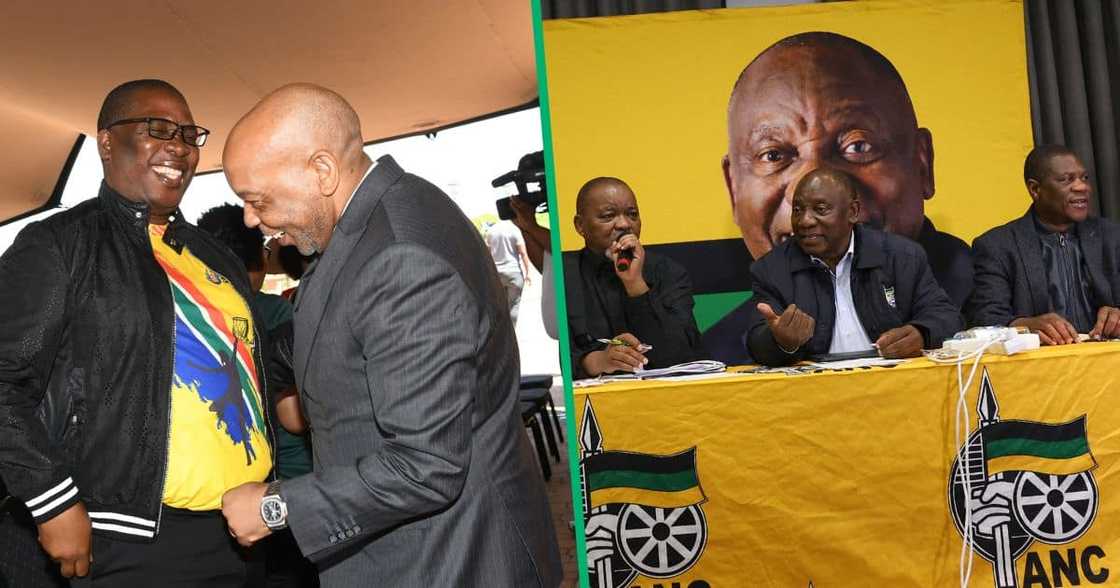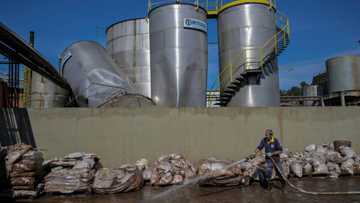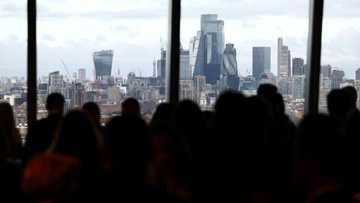South Africa's Top Politicians Join Elite 1% Amidst Severe Income Inequality and Rising Unemployment
- South Africa's top politicians have joined the elite 1% of earners, highlighting the nation's severe income inequality, exacerbated by rising unemployment.
- The Quarterly Labour Force Survey shows a 330,000 increase in unemployed persons, raising the unemployment rate to 32.9% in Q1 2024
- Critics argue that the substantial earnings of politicians are unjustifiable amidst growing poverty and lack of basic services
PAY ATTENTION: Let yourself be inspired by real people who go beyond the ordinary! Subscribe and watch our new shows on Briefly TV Life now!

Source: Getty Images
South Africa's leading politicians have become part of the elite 1% of the country’s population.
Ranking among the highest earners in a nation renowned for its stark income disparity.
This revelation underscores the persistent economic depth that continues to widen in South Africa, which is already recognised as having the world's highest levels of income inequality.
Rising unemployment levels
The Quarterly Labour Force Survey (QLFS) by Statistics South Africa (Stats SA) indicates that unemployed persons increased by 330,000 to 8.2 million during the first quarter of 2024.
PAY ATTENTION: Briefly News is now on YouTube! Check out our interviews on Briefly TV Life now!
According to Stats SA, the official unemployment rate stands at 32.9%, an increase of 0.8 percentage points in the first quarter of 2024 compared to the fourth quarter of 2023.
The QLFS results also indicate that the number of employed persons increased by 22,000 to 16.7 million in the first quarter of 2024 compared to the fourth quarter of 2023.
Rising Political Salaries
Politicians' earnings have been attributed to statutory salary increases, allowances, and perks accompanying high-ranking government positions.
According to BusinessTech, these benefits include housing allowances, travel stipends, and other non-taxable perks that significantly boost their take-home pay.
President Cyril Ramaphosa and his cabinet reportedly enjoy compensation packages that mock the average income of ordinary South Africans.
For example, the President’s annual salary is over 30 times higher than the national median income, highlighting the disparity between the ruling elite and the general populace.
Under 40,000 government employees bag over R1 million annually, excluding benefits and perks.
Impact on Public Perception
The news has stirred mixed reactions among South Africans, with Sipho Mkhize, a social activist based in Johannesburg, arguing that politicians' substantial earnings are unjustifiable in a country where unemployment is rising.
"We live in a country where the gap between the rich and the poor is growing. Seeing our leaders become part of the elite 1% is disheartening and raises questions about their commitment to addressing inequality.
"Many citizens struggle with inadequate access to basic services such as healthcare, education, and housing."
Domestic worker's salary and earnings in South Africa
In a previous article by Briefly News, the domestic worker profession is in high demand in the country, and homes with domestic workers are commonplace in South Africa.
An estimated 800,000 people work as domestic workers in the country. The minimum wage increased in January 2024, good news for South African domestic workers.
The Department of Employment and Labour’s National Minimum Wage Commission recommended an above-inflation hike to the NMW for 2024.
PAY ATTENTION: Follow Briefly News on Twitter and never miss the hottest topics! Find us at @brieflyza!
Source: Briefly News




